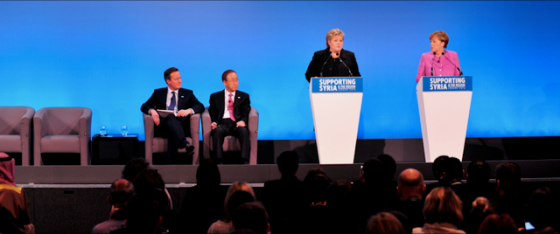On Monday, September 11, while the world had its eyes on the natural disasters Harvey, Irma and the imminent German elections, Norwegians went to the polls in what would be a 'thriller' general election. In the wake of a year that shocked political commentators, political risk analysts have become anxious about the coexistence of the accelerated rise of right-wing populism with business interests in a globalized world.
Political instability, such as the friction, division and polarization that characterizes populist movements will always pose a risk to business. The rise of right-wing populism and a backlash against globalism has given voice, power and momentum to a voter sentiment across traditional liberal economies. This voice and power demands a period of heightened trade protectionism (such as opposition to trade deals both in Europe and the US), revised economic policies (such as proposed US cuts in public finances), and breaking away from old free trade and free market exceptionalism (i.e. - the British people choosing regulatory sovereignty over unimpeded market access). Suddenly, it is our own back-gardens, the ones we always regarded to be low-risk economic environments that transforms to potentially volatile, uncertain grounds, disrupting the status quo and political consensus we used to know.
In this context, the Norwegian election - indeed the Norwegian re-election of Erna Solberg - the head of Norwegian Conservatives, tells us something invaluable about what could be democracy’s ideal answer to right-wing populism, to hedge against the instability it causes and the economic growth it impedes.
A lesson in taming dragons
Solberg’s and Conservatives’ victory in 2013 had commentators painting Norway as the most recent country to subdue to a wave of right-wing populism. The Norwegian Conservatives formed an alliance with what had become the third largest party in Norway: right-wing, anti-immigrant FrP (Progress Party). However, as FrP would soon learn, with power comes great responsibility, and while Solberg initially drew criticism for giving FrP elbow room, this newfound responsibility contributed to moderating some of the anti-immigration party’s most radical rhetoric. By the looks of it, FrP has (for the past four years) adjusted its position, playing up its moderate elements, silencing the more radical party factions.
A governing coalition that included FrP mitigated the threat of its anti-establishment populism. Instead of being met with the dismissive arrogance that often feeds into populist sentiments, those opposing Progress - and indeed their own coalition parties (Conservatives, Liberals, and Christian Democrats) engaged with them in a rational manner using the force of their own ideas. Thus, over the past four years, Solberg and Norwegian Conservatives have skilfully mastered the virtue of inclusive politics, the argument being that only with this approach can populism be co-opted, power can be successfully shared and we can avoid accelerated societal division that has perhaps been seen in other similar electorates (including in France, Finland, Sweden and indeed – Germany).
By no means has the Norwegian Progress party stopped utilizing inflammatory rhetoric. However, comparatively, what Solberg has achieved by bringing Progress into the warmth has been better than efforts in most other western polities. By giving a voice to people who across Europe and in the US have angrily shaken their fists calling out “fake news” left and right, Solberg made sure these same people were answerable and indeed accountable for their own assertions and agendas.
Can Merkel learn from her Norwegian counterpart?
While it is true that Solberg’s approach to populism may be hard to reproduce across Europe - and while it may well be true that right-wing populism is as diverse as the countries they erupt from, the Norwegian example certainly has striking similarities with Germany’s equally thrilling election results only a mere two weeks after Norwegians went to the polls.
As Germany’s Angela Merkel, often dubbed the guardian of the liberal West, prepares to grapple with the political instability caused by the major win of far-right, populist AfD, it certainly seems she has taken note of her Norwegian colleague.
Speaking to her party on the eve of election night, Merkel emphasized that to win German voters back from the populism that has captivated them, she will have to listen. She seems determined to deal with the rise of German right-wing populism the way she emerged as the triumphant German choice – i.e. - by co-opting her contenders and picking what she pleases from their party platforms. But in order to fulfil her promises to address AfD voter concerns and learn to understand and respond to their fears, Merkel might have to do more than that. Like Solberg, she needs to choose her battles wisely and might have to go back on her promise to “never work with the AfD”.




Comments